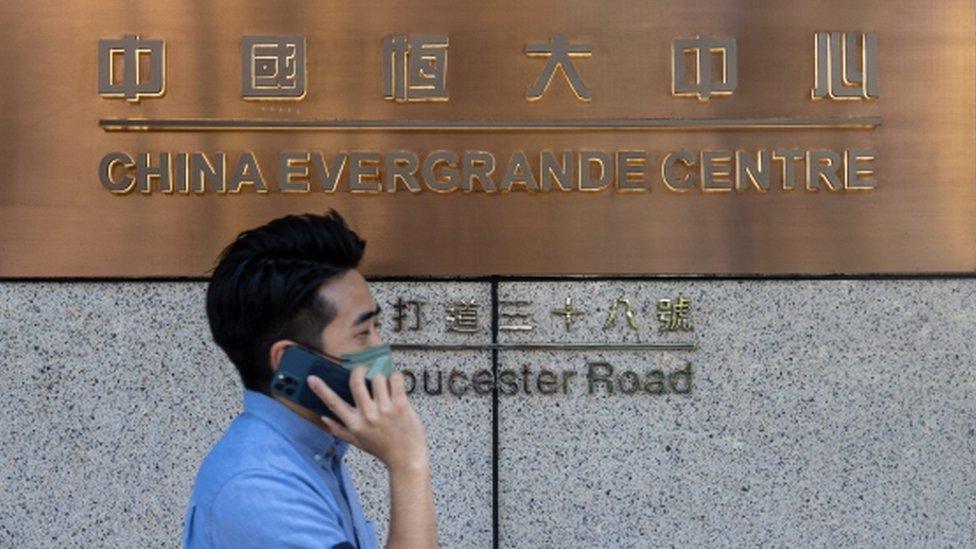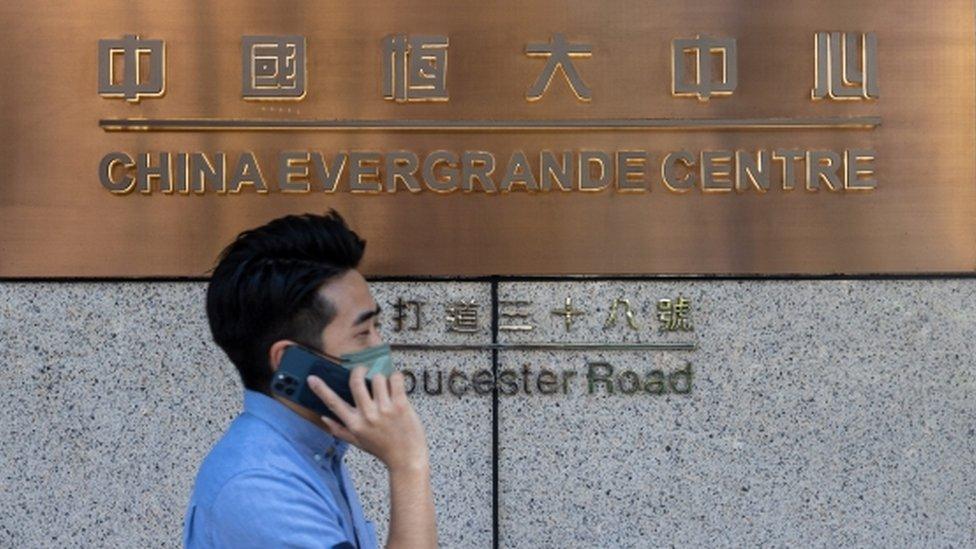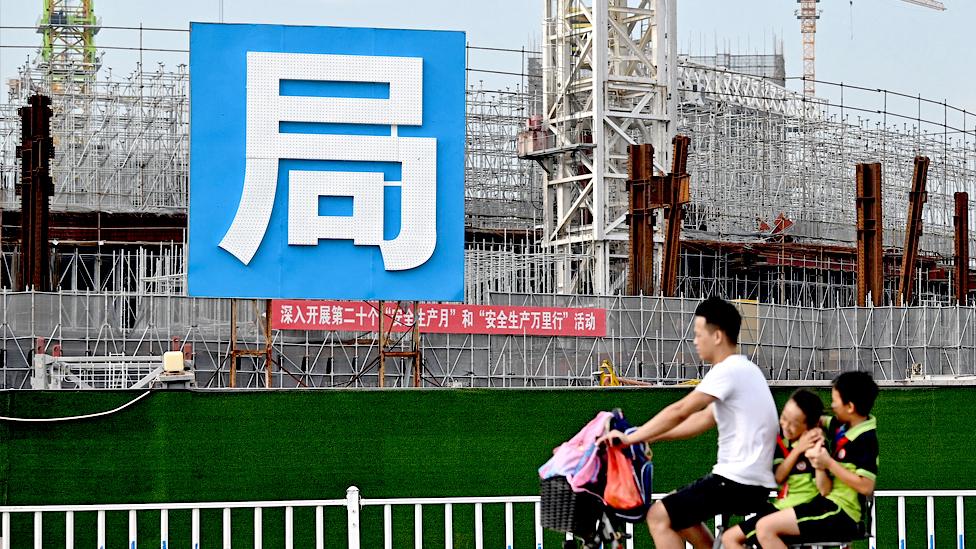Evergrande shares fall 14% as trading resumes in Hong Kong
- Published

Evergrande shares fell as much as 14% on Thursday in Hong Kong as they resumed trading after a 17-day halt.
The hugely indebted Chinese property giant had stopped its shares from trading ahead of an announcement.
Reports said real estate firm Hopson Development was set to buy a 51% stake in its property services unit.
On Wednesday, Evergrande said the $2.6bn (£1.88bn) deal had fallen through as they were unable to agree on the deal's terms.
The crisis at Evergrande has triggered fears that its potential collapse could send shockwaves through global markets.
Investors have concerns about its more than $300bn of debt. The company's total liabilities are equal to around 2% of China's gross domestic product.
Hopson Development is another Chinese property firm that is owed money by Evergrande and some analysts thought this potential deal was a way for Evergrande to write off its debt.
Hopson said on Wednesday that Evergrande told it the deal had been terminated on 13 October and that it was now exploring other options available to protect its interest.
'No guarantees debts will be paid'
The crisis over Evergrande began last year when Beijing, worried by sprawling debt in the real estate sector, brought in new rules to control the amount owed by big developers.
The firm hit an initial stumbling block back then to meet the interest payments on its debts. Now, things have gone from bad to worse.
Its share price has tumbled and its bonds have been downgraded by global credit ratings agencies.
Evergrande's chairman and founder Hui Ka Yan says its plan is to try to secure extensions for its debts and "other alternative arrangements" with its creditors.
But, he added, "there is no guarantee that the group will be able to meet its financial obligations".
In recent weeks, the indebted property giant has reportedly missed interest payments to overseas investors twice.
On Thursday it had been granted a three-month extension on another of its debts after agreeing to provide extra collateral, according to research firm REDD.


When China's state-owned media reported that the Evergrande-Hopson deal was expected, many investors thought it was a done thing. But after waiting for the announcement for over two weeks, it collapsed.
Its property services unit is a crown jewel for the company, and some analysts think Evergrande probably didn't want to sell it without controlling the proceeds of the sale.
But the time is ticking for the company to default. Saturday signals the end of its one month grace period to pay creditors the interest on its debt.
Other developers Sinic and Fantasia have already defaulted earlier this month.
So the big question on investors' mind is: what's next?
Some think Beijing will step in to force Evergrande to sell assets more quickly while the firm restructures and investors - especially outside of China - may end up losing money.
Its shares have already lost more than 80% of their value this year.
China's property developers are believed to owe more than $5tn all up. It's a huge debt for the world's second biggest economy, which is already battling other headaches like the energy crisis and soaring raw material costs.

What China's Evergrande crisis means for the world
Related topics
- Published5 October 2021

- Published29 January 2024
